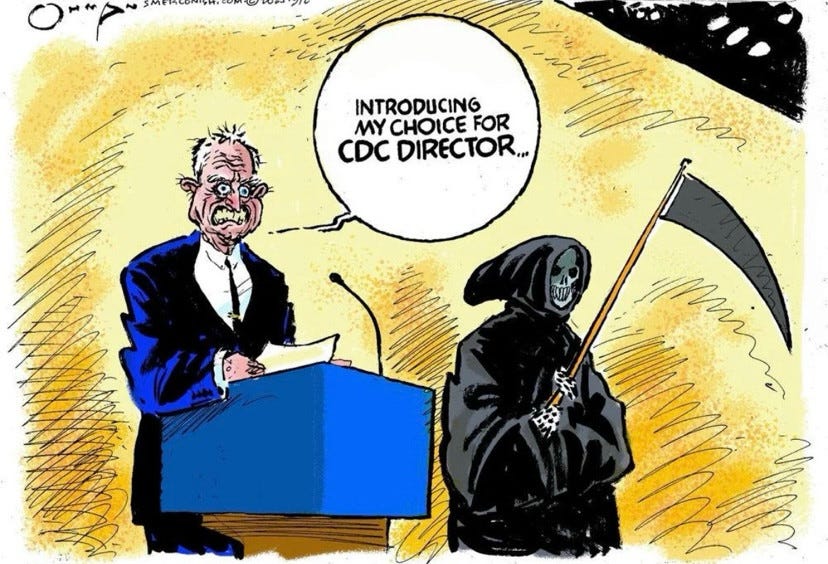Improve health with solutions, not rhetoric
Let policy follow evidence, not the other way around
As scientists, we are trained to approach the world with skepticism; but that skepticism is supposed to be to find solutions, not deepen distrust. We form questions, think deeply, execute methods, and present our results. Yet, our communication often fails to produce policy action, public trust, or full execution of our recommendations. The election of Donald Trump and other recent shifts in U.S. government signal a desire for some form of change from the American people. The path taken for that change has involved amplifying unsupported rhetoric and implementing a political plan that centers on destruction of government infrastructure. As healthcare researchers, we reject approaches that substitute inflammatory political rhetoric for scientific solutions. Robert F. Kennedy Jr., as the leader of the United States Department of Health and Human Services, has the tools to implement change in healthcare. Because of his position as a central leader in the “Make America Healthy Again” movement he also has the narrative power to shape the path of solutions that could help people. Sadly, 6 months into his tenure in one of the most important jobs in the world, he is focused on vengeance and instability instead of improving people’s health.
While some values of the Make America Healthy Again (MAHA) movement, such as increasing food quality, have merit, that is as far as it extends. The promotion of vaccine misinformation and health research skepticism outweighs any benefits of the MAHA movement on public health. In fact, the destruction of government infrastructure combined with widespread misinformation will set back chronic disease care for decades to come.
Chronic disease, and healthy lifestyle research is possible because of the enormous progress in the control of infectious disease. A slogan-driven theory of change poses a deeper problem. When policymakers follow culture-war logic instead investing in solutions, progress stalls. The current policy and government infrastructure changes are in line with culture war ideologies rather than legislation that align with health management.
Despite promises to make America healthier, leaders of health agencies like the NIH have dismantled what they incorrectly deemed are “DEI programs and research activities”; they are constantly being sued over the termination of awarded peer-reviewed grants. They have diverted public funds from health-promoting action to legal battles. At the same time, they channel concern about ultra-processed foods into narrow fights over food dyes and oils, areas with limited consensus, instead of advancing comprehensive policies that can improve diet and activity. Instead of listening, assessing the situation, and changing the future direction; they swiftly cancelled programs they did not fully understand.
If you believe DEI is unscientific, present the data, create a plan, and then act. If you believe vaccines are unsafe, present credible studies, create a plan, and then act. If you oppose fluoridation of water, show your analysis, create a plan, and then act. Let policy follow evidence, not the other way around. The speed and decisiveness on display are striking - even enviable at an operational level - but leaders deploy them to destroy programs instead of finding solutions.
In recent years of building up DEI programs, progress was gradual and incremental. People were told to engage with their past, expand hiring practices, think about inclusivity. If DEI expansion had followed the actions of what the current leadership is doing, it would take money from all departments because they do not have adequate representation of race, ethnicity, and gender. That did not happen. There is no equivalence between the 2020-2024 changes to increase diversity to current changed that are causing mass layoffs, dramatically changing funding practices, and disrupting public services.
Institutions, especially elite ones, will do whatever is necessary to preserve themselves. Collective action is needed here, but it is even more important to preserve our individual values. Instead of focusing on destroying the other side, I am eager to hear what solutions people will present in this moment. It is clear that healthcare and healthcare research will be a lot different going forward. Solutions are possible, but they must be implemented in alignment with clear priorities and a robust plan. We must set up public heath infrastructure that is resilient throughout various political climates. Investment in health promotion and quality research is no longer bipartisan, and we must prevent further erosion of the means at our disposal to enact change.




